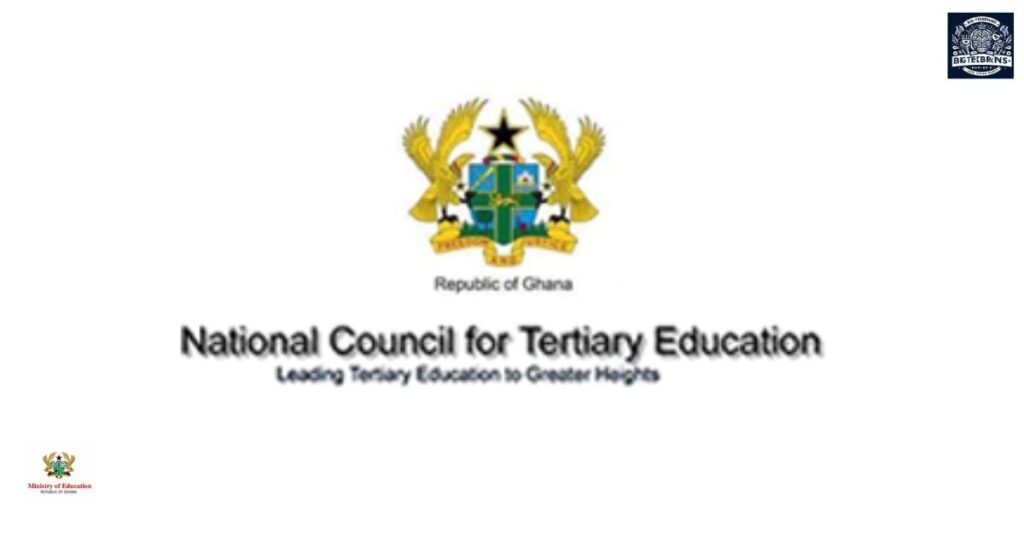Excerpt
The National Council for Tertiary Education (NCTE) plays a critical role in shaping the tertiary education sector in Ghana. As a government body, it is responsible for providing oversight, ensuring quality standards, and guiding policy decisions that affect universities and other higher education institutions. This post explores the NCTE’s history, constitutional mandates, leadership structure, and operations within the education sector.
Historical or Background Overview
The National Council for Tertiary Education (NCTE) was established in 1993 under the National Council for Tertiary Education Act, 1993 (Act 454). Its primary mandate is to oversee the development and implementation of policies for tertiary education in Ghana. NCTE was created to ensure that tertiary institutions operate under standards that promote quality education, academic excellence, and relevance to national development.
The NCTE oversees a variety of educational institutions, including universities, polytechnics, and other tertiary level training schools, ensuring they align with Ghana’s broader educational goals.
Constitutional Mandates
The NCTE’s constitutional mandates are centered around:
Policy Regulation:
- Setting and reviewing policies for the management and development of tertiary education.
Quality Assurance:
- Ensuring quality academic programs and infrastructural development across the sector.
Resource Allocation:
- Advising the government on the funding and allocation of resources for tertiary institutions.
Accreditation:
- Granting accreditation to tertiary institutions to operate and offer academic programs.
Research and Innovation:
- Encouraging and overseeing research initiatives within tertiary education institutions to drive national development.
Leadership and Ranks
The NCTE is led by an executive board composed of professionals and education experts. Key leadership positions include:
Chairman:
- The highest-ranking official responsible for overseeing council decisions and strategies.
Executive Secretary:
- Manages the day-to-day operations of the council.
Council Members:
- Appointed based on expertise in education, policy, and related fields.
The leadership ranks also include various departmental heads who ensure the smooth execution of NCTE’s mandates.
Offices or Units
The NCTE operates through various specialized units, each responsible for specific aspects of tertiary education in Ghana:
Accreditation Unit:
- Manages the accreditation process for new and existing institutions.
Research and Policy Unit:
- Oversees research initiatives and formulates policies in line with national educational goals.
Planning and Development Unit:
- Focuses on infrastructure development and long-term planning for the sector.
Finance and Administration Unit:
- Handles the financial management of the council and ensures the efficient allocation of resources.
Mode of Appointment or Recruitment
The leadership and staff of the NCTE are appointed or recruited based on public service protocols. Key appointments, such as the Chairman and Executive Secretary, are made by the President of Ghana. Council members are usually selected based on their qualifications, experience in education, and contributions to national development. Recruitment into various NCTE positions is carried out through a competitive process, ensuring transparency and merit-based selections.
Overseers or Ownership
The NCTE is owned by the government of Ghana and operates under the Ministry of Education. It is the key body for the government’s higher education policy decisions. The council reports to the Ministry of Education and works in partnership with other relevant ministries and agencies to align its work with the country’s educational goals.
Partners or Customers
The NCTE collaborates with:
Tertiary institutions:
- Including public and private universities, polytechnics, and other academic institutions.
International Bodies:
- Partners with international organizations such as the United Nations Educational, Scientific, and Cultural Organization (UNESCO) and the African Union (AU) to advance education in Africa.
Government Agencies:
- Works closely with the Ministry of Finance, Ministry of Education, and other public bodies to implement national educational reforms.
Operations or Job Roles
The NCTE carries out a range of operations designed to improve tertiary education:
Accreditation and Evaluation:
- Ensures that institutions maintain standards and improve teaching, research, and facilities.
Policy Formulation:
- Works with other stakeholders to craft policies that shape the educational framework.
Monitoring and Evaluation:
- Regularly monitors educational institutions to ensure compliance with standards and regulations.
Resource Mobilization:
- Secures funding for tertiary education projects and facilitates their proper use.
Historical Reforms
Over the years, the NCTE has played a significant role in driving reforms within Ghana’s tertiary education system. Key reforms include:
University Restructuring:
- Helping to transform traditional universities to meet international standards.
Curriculum Development:
- Revamping curricula to reflect the needs of modern industries and global academic trends.
Decentralization of Education Management:
- Allowing more autonomy to individual institutions while maintaining regulatory oversight.
References:
- National Council for Tertiary Education (NCTE) Website – GTEC | Home
- National Council for Tertiary Education Act, 1993 (Act 454)
- Ministry of Education, Ghana Official Website
- UNESCO Reports on Higher Education in Africa

